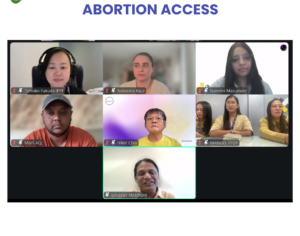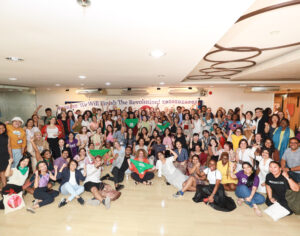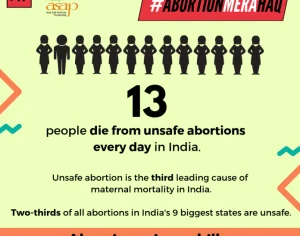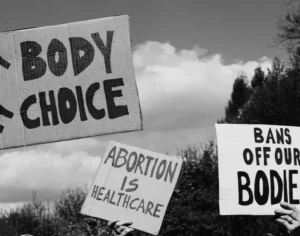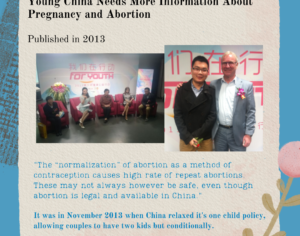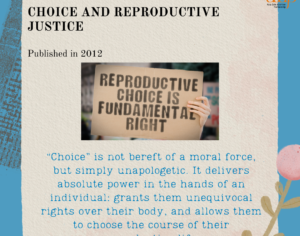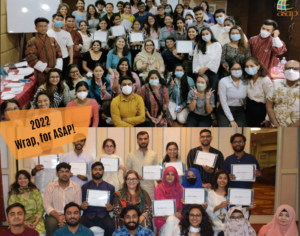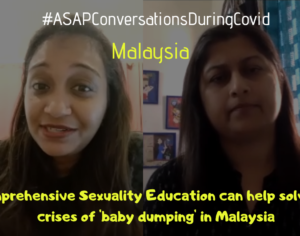Abortion At Women Deliver 2013
Women Deliver 2013 is the first of the three conferences to acknowledge the burden posed by unsafe abortion, and create a space for discussions on safe abortion, and the rights to the same.
Women Deliver includes abortion in its agenda carefully and diplomatically. There have been several sessions on access, advocacy, law, punitive actions, policy and stigma. There is even a plenary session today on performing abortions. These sessions are informative and bold.
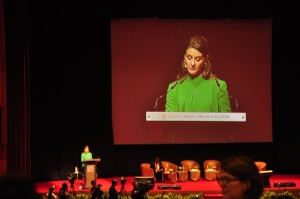 Yet abortion is also conspicuously absent from some of the mainstream discussions on family planning. Take the plenary session by Melinda Gates on Day 2. She asked the audience to remember that our duty to women does not end with contraception. “Contraception does not make sure that a woman will deliver a healthy baby, or will be able to find clean water and food for them,” she cautioned. Yet, she did not mention contraceptive failure, and the options available to women if that happens.
Yet abortion is also conspicuously absent from some of the mainstream discussions on family planning. Take the plenary session by Melinda Gates on Day 2. She asked the audience to remember that our duty to women does not end with contraception. “Contraception does not make sure that a woman will deliver a healthy baby, or will be able to find clean water and food for them,” she cautioned. Yet, she did not mention contraceptive failure, and the options available to women if that happens.
But perhaps I am being a bit too unrealistic in expecting Ms. Gates to talk about abortion. She did create a storm already by standing up to the Catholic Community and speaking up for the need to give all women access to contraception. Her unshaking commitment to the issue is commendable. Her omission of abortion also comes with a sincere confession that to her abortion still remains a matter of conscience, and not public health.
 But it was disappointing that Hillary Clinton did not mention abortion in her video address at the opening ceremony. Ms. Clinton is a hero for many women around the world, and we know she is pro-choice. So, to hear her talk about family planning without spelling out the need to recognize the importance of access to safe abortion deflated my optimism.
But it was disappointing that Hillary Clinton did not mention abortion in her video address at the opening ceremony. Ms. Clinton is a hero for many women around the world, and we know she is pro-choice. So, to hear her talk about family planning without spelling out the need to recognize the importance of access to safe abortion deflated my optimism.
She also set the tone for this Women Deliver 2013. I realized in that moment when Ms. Clinton closed her address that while even those who know that bodily autonomy and empowerment cannot be achieved without the right to safe abortion, might not spell it out in order not to lose the gains that have already been made for women’s reproductive health and right.
In short, the world is not as ready to accept women who do not want to be mothers, as it is ready for women who want to become mothers. After the opening ceremony, I was not sure if I should be joyous that women are being allowed to advance within the existing power structures, or if as a feminist I should be unhappy that patriarchal structures and capitalistic frameworks remain unchallenged.
But that very evening a debate organized by Marie Stopes International put this very argument on the table. A very vibrant audience from across the globe was asked to vote on the motion, “Is the Global Health Community On The Right Track To Achieve Reproductive Health and Rights.” Arguing for the motion was Joy Phumati of the WHO and arguing against was Suchitra Dalvie, ASAP’s Coordinator.
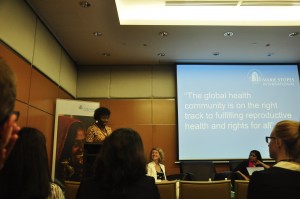
Ms. Phumati’s argument was sincere. She admitted that the global health community has taken steps backward in order not to lose the gains made. Compromises on safe abortion for example, she said were necessary while operating in a world that was hostile to women’s health and needs. But she asked the audience to focus on that one or two advances that these negotiations preserved.
Dr. Dalvie decimated this argument by deconstructing the very nature of the operative power structures within which we are forced to make these unfair negotiations. The current focus on motherhood and maternal health stands on the patriarchal ideal that women as those endowed with organs that can bring both men and women into the world deserve to be able to do so without putting their lives at risk. 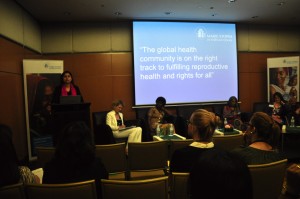 It fails to question gender norms, heteronormative hegemonies, patriarchal ideals and capitalistic frameworks which devalue all women, particularly marginalized women like lesbians, women with infertility, women who have abortions, sex workers, immigrant women just to name a few. It also forces women to embrace masculinities in order to hold positions of power.
It fails to question gender norms, heteronormative hegemonies, patriarchal ideals and capitalistic frameworks which devalue all women, particularly marginalized women like lesbians, women with infertility, women who have abortions, sex workers, immigrant women just to name a few. It also forces women to embrace masculinities in order to hold positions of power.
It was actually surprising and very exhilarating to see that the majority of the audience actually agreed with Dr. Dalvie, and called for changes in the very fabric of the power structures. It was even more exciting to see that many of these were young people.
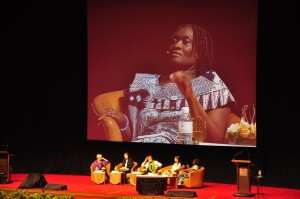 And that for me was the highlight of Women Deliver 2013. I left the magnificent Kuala Lumpur Convention Center where the conference is being hosted feeling optimistic. Backlash is inevitable, and sometimes so are compromises. What this really should mean is that we become more determined than ever to challenge the very structures that make these compromises necessary in the first place.
And that for me was the highlight of Women Deliver 2013. I left the magnificent Kuala Lumpur Convention Center where the conference is being hosted feeling optimistic. Backlash is inevitable, and sometimes so are compromises. What this really should mean is that we become more determined than ever to challenge the very structures that make these compromises necessary in the first place.
This is the third and the last day of Women Deliver, and I was at a plenary session where Theo Sowa, CEO of the African Women’s Development Fund asked the audience to be bold, be imaginative, innovative and create a new framework worth inheriting.
Amen to that!
Watch this space for more on Women Deliver 2013.

